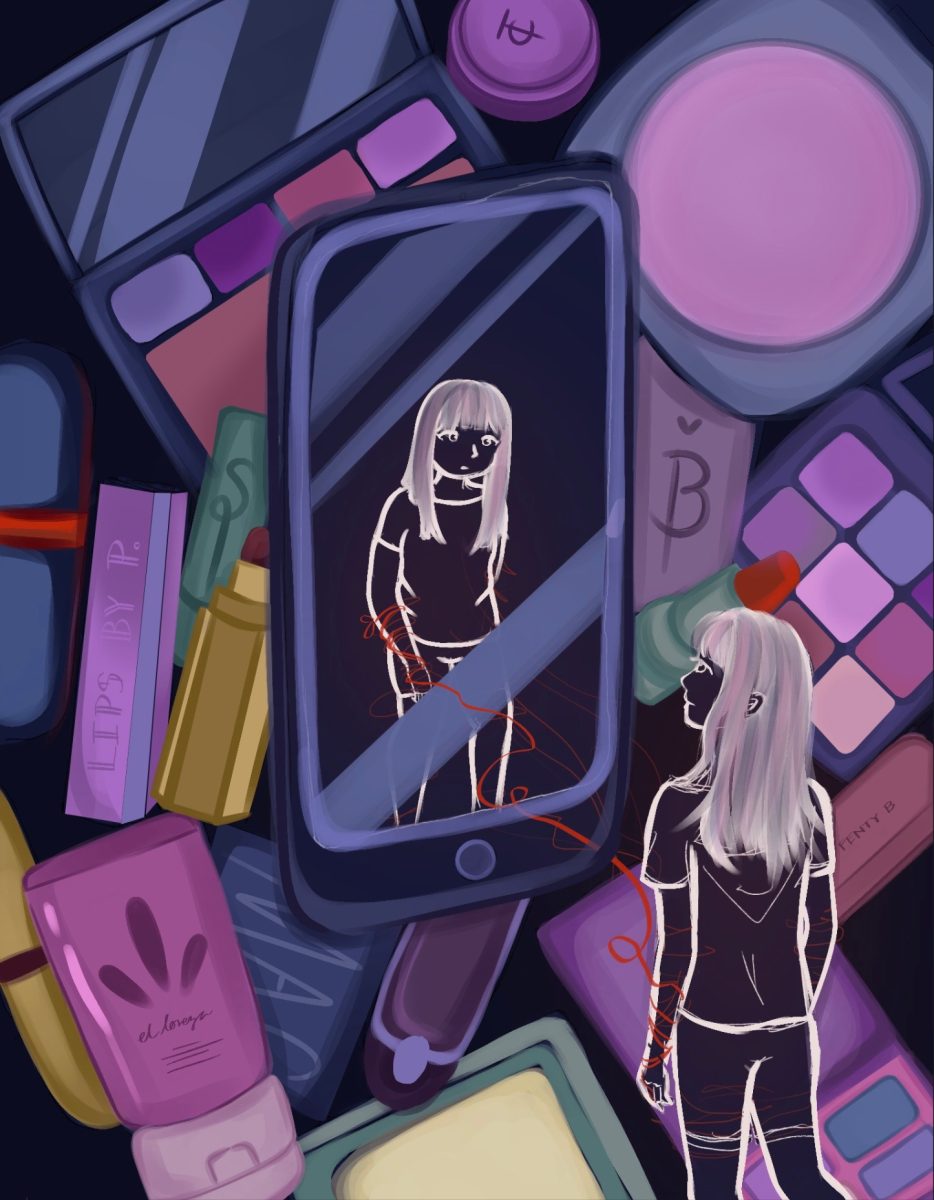According to the National Institute of Health, up to 95 percent of youth ages 13–17 use a social media platform, with more than a third saying they use social media “almost constantly.” Of this 95%, many users are female, specifically teenage girls. Even without this data, it is evident throughout society that every girl no matter the background is affected by the content and influence of social media. Toxicity floods this content, creating devastating effects for generations of women over the years.
“Since the beginning of time, it feels like there’s always been this standard of women looking glamorous and made-up,” Performing Arts and Junior High activities director Carrie McRobbie said. “But I think today it’s especially prevalent. People feel the pressure to look a certain way due to social media.”
Similarly, when describing the beauty standards of today, sophomore Elle Karimi says a lot of this pressure stems from the other girls we see online.
“[Beauty standards are] not really spoken of a lot, it’s mainly what you see on the internet about all these extremely pretty girls on social media that get the most likes,” Karimi said.
Yet what many girls of today and throughout generations fail to see is that beauty standards are made purely for marketing products, leading women to fall victim to the glut of maliciously hidden advertisements within the content they consume. World Languages department head Olivia Bradley agrees.
“In my day, it was magazines; now it’s social media and the influencers,” Bradley said. “It’s unhealthy, the standards they set in the magazines. It’s not realistic.”
Today, there is a shift from magazines to social media, platforms that on the surface seem like real, genuine people sharing their experiences for fun, yet underneath, are filled with the same intentions of profit.
“There’s this belief created that if you don’t do these things or if you don’t look this way that you’re less than in some way,” McRobbie said. “That diminishes self worth and creates body dysmorphia like eating disorders and so many terrible things.”
Underneath it all, the reason these hidden advertisements are so effective lies not in the companies targeting women but in the standard society keeps upholding. Women need to take control and reclaim true beauty, which is not found in filters, the number on the scale, the products you put on your skin, the hair you remove from your body, or the meals you skip. Women are beautiful. Their minds, their emotions, their natural selves, their passions, their desires, their backgrounds.
“I think that we need to be more supportive of each other just as a culture.” McRobbie said. “Be more vocal about what we love about people, what we appreciate about people that’s beyond the surface.”
Don’t let them profit off of their definition of beauty. Reclaim what has always been in the hands of women.
The Consequences of Beauty Standards and Consumerism
Ella Kim, Staff Writer
October 28, 2025
0






